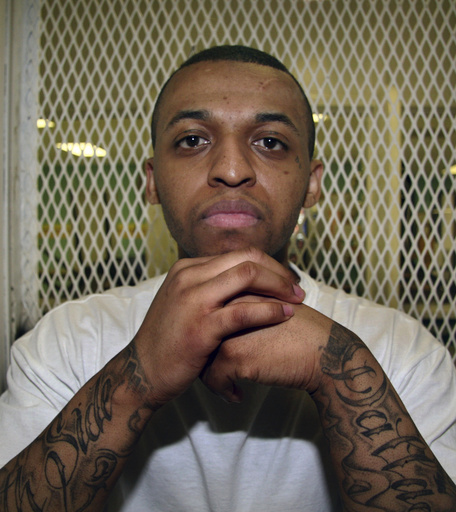
A man from Texas, Steven Lawayne Nelson, faced execution on Wednesday for the 2011 murder of a pastor in the Dallas area, marking the second execution carried out in the U.S. this year. Nelson was convicted of the brutal killing of Rev. Clint Dobson, a 28-year-old pastor, who was attacked, choked, and suffocated with a plastic bag inside NorthPointe Baptist Church located in Arlington. Additionally, the church secretary endured severe injuries but ultimately survived the assault.
At age 37, Nelson was scheduled to receive a lethal injection on Wednesday night at the Huntsville state penitentiary. His execution would represent the first case of a Texas death row inmate undergoing execution since Robert Roberson’s execution date was postponed on October 17, 2024, a situation that marked a significant moment in death row history related to the diagnosis of shaken baby syndrome. There are four additional executions set to occur in Texas over the upcoming months.
On Friday, South Carolina carried out its first execution of 2025, involving Marion Bowman Jr., who had been found guilty of murder for the shooting death of a friend, resulting in the discovery of the charred body in a car trunk back in 2001.
Nelson’s background reveals a troubled past, being a laborer and high school dropout with an extensive history of legal issues, some dating back to his childhood. While on death row, he recently got married and has requested clemency, asserting that he was only acting as a lookout during the robbery and attributing the murder of Dobson to two other men.
During the trial, Nelson testified that he remained outside the church for roughly 25 minutes prior to entering and encountering the beaten victims, including the notion that Dobson was still alive. He admitted to taking Dobson’s laptop and claimed that another perpetrator handed him the car keys and credit cards belonging to the secretary, Judy Elliott.
Elliott’s husband, the church’s part-time music minister, discovered the injured victims but initially failed to recognize his wife due to her severe injuries. Evidence presented at trial included Nelson’s fingerprints, fragments of his broken belt found at the scene, blood from the victims on his sneakers, and surveillance footage that captured him driving Elliott’s car and utilizing her credit cards. Investigators uncovered that the two men whom Nelson implicated in the crime had verified alibis, one tracked 30 miles away via phone records and the other confirmed by both phone records and a classroom sign-in sheet.
Nelson’s legal team has raised claims regarding inadequate representation during his trial and sentencing, asserting that his lawyers neglected to effectively contest the alibis or present mitigating circumstances stemming from his dysfunctional upbringing in Oklahoma and Texas. State and federal courts denied his appeals, with the Texas Court of Criminal Appeals refusing to postpone the execution on January 28. This week, Nelson’s attorneys sought intervention from the U.S. Supreme Court to pause the execution, hoping for additional time to challenge the conviction.
While awaiting trial, Nelson was implicated in the death of another inmate during his time in jail; however, he was never brought to trial for that accusation following his conviction and sentencing. Notably, during his trial, he caused disturbances by breaking an electronic monitor off his ankle and damaging a water pipe, which led to flooding in the courtroom. Additionally, he often managed to free himself from shackles by concealing the key.
In Texas, three more executions are scheduled before April concludes, with the next one set to take place on February 13. Richard Lee Tabler, condemned for murdering a strip club manager and his friend on Thanksgiving weekend in 2004, is among those facing imminent execution. Tabler has also admitted to the killings of two dancers who worked at the club but was never tried for those murders.

